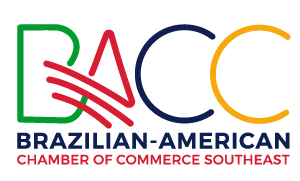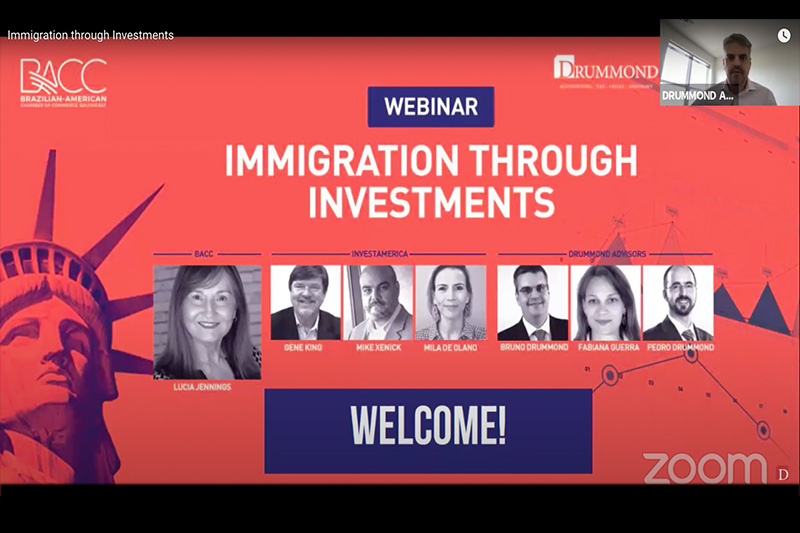
Fintech Event
October 21, 2019
Characteristics of a Good Business Plan
May 27, 2020Once they are well-established in their domestic markets, many companies do not stop there; they want to move on to the next stage of development and begin preparations for expansion into foreign markets.
Entering the international sphere can be a sign of great success for any company, but not all of them succeed. To invest in the international market and maintain a strong position, it will be necessary to reorganize work processes with consideration of many new factors that may not be present in the home country. Therefore, here we present a high-level overview of the actions necessary to start working in foreign markets.
Is your company ready to go global?
Obtaining and maintaining positions in foreign markets is much more difficult than simply announcing the globalization of your company and waiting for revenue from sales abroad. The organization of Marketing and Sales, for example, in another country requires careful preparation and study of several of the most important aspects of doing business in that market. To find out if you're really ready to expand, ask yourself a few questions:
- What will your target audience be?
- How different is your potential foreign market?
- Are there sufficient resources and personnel to conduct business and start expanding into new markets?
Your main task is to "explore the situation", that is, to study the foreign markets you are looking to enter. Before investing time and money in conquering new territories, you must be sure that your buyer is there, that he needs your products and that you have a sales process that will lead to him eventually buying from you.
International economy experts advise company executives to visit these countries in person and form their own ideas of whether their business will work there. This will allow you to not only conduct high-quality marketing research, but also become familiar with the culture, traditions and social foundations of your potential buyers.
Detailed familiarization with market characteristics is necessary to effectively negotiate and conclude profitable agreements. It is necessary to take into account the presence of trade restrictions, geographical location and transportation infrastructure within the country, characteristics of the monetary and legal systems and the country's culture, as just a few examples.
Successfully bringing a business to the international level is only possible when the company's structural and financial stability allows it to attract new employees who will handle the growing workload. It is important to form a strong team that will be responsible for the expansion of the company and effectively overcome all types of obstacles.
The Difficulties of Doing Business Abroad
Expansion to foreign markets is a good business goal, but its achievement does not occur without a series of difficulties for which it is advisable to prepare in advance. These may include:
● Linguistic and Cultural Differences
To overcome the language barrier between your company and customers and foreign partners, you can hire employees who speak two languages. Even better, it’s usually more effective to include a majority of bilingual local nationals among the ranks of your new employees. They will be able to communicate freely with the locals, translate the documentation, interpret when necessary, and overall be able to “kickstart” an understanding of the business and cultural norms. If the business is not well-established, you can invest in freelancers or external consultants to fill these roles in the short term.
For a successful expansion in foreign markets, it is important that you have knowledge of the local culture and traditions. Take the time and effort to study the culture and life of local residents, especially if the consumption of your goods or services is directly related to consumers. Remember that the local population, as well as the business community, may have completely different needs compared to customers in your country. This may require a different approach in developing a business strategy.
You will have to adapt to the communication methods preferred in the target countries. For example, in the USA, people are direct and reserved; therefore, it may appear that a business partner is rude and hostile, although he may not be. In Brazil, on the contrary, the resolution of business issues is preceded by a relaxed form of communication and discussion of personal matters; therefore, you’ll be more successful if you do not rush this phase of the negotiations.
● Compliance with Tax Laws and Other Legal Regulations
To learn how to navigate the nuances of trade and tax laws in different countries, you can start with a study of the rules for taxing income from activities abroad, both in your home country and the foreign one.In addition, administrative complexities can cause difficulties in working with banks in the countries in which you plan to work. Therefore, you will probably need to create business entities in these countries and open new bank accounts. Then, it will be more profitable for foreign banks to carry out your company's financial operations.
Did you know that regulations vary greatly over things like packaging and labeling standards for products across countries? For example, in the USA, product instructions are published in English, sometimes with a description in Spanish or French. At the same time, European requirements are much stricter: even simple goods are accompanied by instructions in more than twenty languages.
If you intend to establish regional sales of your products, this will incur additional packaging costs, as different labels will be required. Safety certification is also required according to the standards of the country in which the target market is located.
● Local Competition
You will have to make considerable efforts to convince buyers to abandon the usual products of a local company and switch to your company’s products or services. Some large global brands, such as McDonald's, can quickly gain popularity when entering a new foreign market, but it will be more difficult for small and medium-sized businesses to gain the trust of foreign consumers and overcome competition from local companies.
Ask yourself: does your product have advantages over local products? Will those be enough to take a piece of the market? Will it bring profit in the end, that is, is the game worth it?
Tips for Success.
If you have evaluated the pros and cons and are ready to start your promotion in the international market, do not ignore the lessons learned by companies that have already been on this path.
- Look for partners
- Get a good team together
- Be attentive to the need for innovation
- Be consistent in the brand, but consider the characteristics of the market
It is not advisable to start such a serious project on your own, perhaps you need someone who can help you in the process of establishing business contacts abroad. It would be great if your partner already understands the nuances of your company and sector as a whole and focuses on your target market. Equally important is the presence of a potential capital partner, who can help with initial finance of the company, if necessary.
But the main thing is to outline objectives, commit to a written strategic plan, establish business contacts and to follow through constantly. This will avoid the wrong steps when investing or establishing contracts. In an effort to succeed in the foreign market as quickly as possible, be ready, but cautious to immediately make concessions to foreign partners. There is always a risk that you are dealing with the "wrong" people, and could subject your company to criminal activities, such as bribery, fraud, and cybercrime, for example.
The issue of hiring employees who will be responsible for the negotiation process and working with clients in another country deserves special attention. You cannot be without a strong team that includes competent experts who know the laws, norms, the language and have the necessary connections in local business circles.
Your company may need to create new types of products or variations on the existing product lines, adapted to the new market. Same for approaches for sales and marketing programs. Being an international company, you will have to look to the needs of customers, now not only in the domestic market, but also abroad.
When presenting new ideas, consider how applicable they are to your foreign markets. Don't forget features like time zone, language, local cultural norms; otherwise, foreign partners may conclude that your personal interests come first to you and their needs don’t matter.
Each country's special lifestyle determines the purchasing needs for which you must adapt your approach to product creation and sales. You should not change the appearance and traditions of your brand, but it may be necessary to change some characteristics of the products (product composition / restaurant menu) according to the needs of local residents.
To effectively meet customers' needs, choose the right location for your production facilities (if you will manufacture products outside of your home country) and set up a flexible manufacturing process. It is equally important to effectively organize a network of suppliers. By establishing quality standards and purchasing from local suppliers where possible and economical, you can increase profitability and create a more reliable supply chain.
Remember
Making important decisions always requires a calm and responsible approach, especially when it comes to doing business abroad. Consider possible scenarios based on your company’s strengths and weaknesses. Don't rush things, you must clearly understand all aspects of your market expansion strategy and look closely at the markets your company is targeting.
The Brazilian American Chamber of Commerce of the Southeast (BACC-SE) was established more than 20 years ago to promote trade and investment activities between Brazil and the United States. Once you become a member of BACC-SE, we can offer help at any stage of your journey in establishing an international business.





